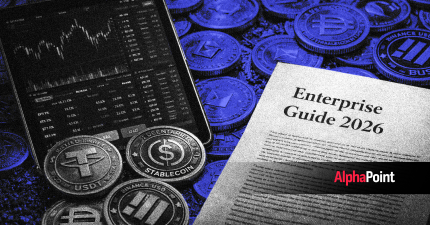P2P Crypto Exchange Software: What It Is, How It Works, and Developing Your Own Exchange
As cryptocurrency reshapes global finance, businesses increasingly seek decentralized platforms for autonomy and security. The demand for control and anonymity in transactions has made peer-to-peer (P2P) crypto exchanges appealing to traders and investors.
If you’re considering launching a platform, you’ve likely explored centralized exchanges like Coinbase or P2P crypto exchanges like KuCoin. While centralized exchanges remain popular, P2P exchanges are gaining traction among users seeking more control over their trading activities, making them a smart investment for businesses targeting this expanding market.
If you want to tap into this segment of self-directed traders, you’re in the right place. We’ll guide you through the essentials of P2P crypto exchanges — what they are, how they function, and how to successfully launch your own platform.
What Is a P2P Crypto Exchange?
A P2P crypto exchange, or peer crypto exchange, is a decentralized platform where users trade digital currency directly with one another, without intermediaries or central oversight. This model offers users full control over their transactions and typically lower fees.
Transactions occur on a blockchain network and with the added security of an escrow wallet, ensuring assets are exchanged without interference. Users can trade confidently, knowing their funds are protected from potential theft by either party.
How Does a P2P Crypto Exchange Work?
To create a successful peer-to-peer cryptocurrency exchange, mastering its core principles is essential for building a platform that stands out and thrives.
Decentralization
The foundation of any P2P exchange is decentralization. With no central authority overseeing transactions, users have full control, which appeals to traders seeking autonomy and privacy.
Direct Trading
Transactions occur directly between users on a blockchain network, bypassing intermediaries. This setup streamlines cryptocurrency trading and often reduces fees, enhancing transaction speed and efficiency. Users negotiate terms, execute trades, and settle agreements independently.
Escrow Protection
A defining feature of P2P exchanges is the use of escrow services. Unlike typical decentralized exchanges, which lack this safeguard, P2P exchanges protect both buyers and sellers during the trade.
An escrow wallet temporarily holds crypto assets until both parties agree on the transaction terms. Once terms are met, the assets are released, minimizing the risk of fraud. Escrow protection relies on blockchain technology, making all transfers quick, transparent, and secure.
Multiple Payment Options
Flexibility in payment options is a key feature of P2P exchanges, accommodating users globally. You can offer bank transfers for local transactions, wire transfers for international payments, and even cash for in-person exchanges.
Providing multiple payment options makes your platform accessible to a broader audience, fostering increased user adoption.
Considerations for Developing a P2P Crypto Exchange Platform
With the cryptocurrency market now valued at $2.28 trillion (as of September 19, 2024), it presents a massive opportunity for businesses. P2P exchanges are becoming increasingly popular, and developing a platform that fits into this growing crypto ecosystem can be a lucrative venture.
However, success hinges on careful planning and attention to key factors like regulatory compliance, security, liquidity management, and user experience.
Regulatory Compliance
Despite the decentralized nature of cryptocurrency, regulations still apply to protect users from financial crimes. Ensuring your platform is compliant with regional requirements is crucial for long-term success.
While these frameworks vary by jurisdiction, some are common, such as KYC (Know Your Customer) and AML (Anti-Money Laundering), which require user verification to monitor transactions and prevent illegal activities.
If you plan to operate in the U.S., you’ll also need to comply with CFTC (Commodity Futures Trading Commission) regulations — such as the Commodity Exchange Act (CEA) — especially if dealing with digital assets like Bitcoin futures contracts.
It’s advisable to consult legal professionals to ensure your platform is fully compliant across all areas of operation.
Security Measures
Security is paramount for any P2P cryptocurrency exchange, as these platforms can become targets for cybercriminals.
Establishing robust security protocols will prove vital to your cryptocurrency exchange development process. Key measures include:
- Two-factor authentication (2FA): Ask users to enable this security feature to protect their accounts. 2FA requires them to verify their identity by entering unique codes (provided through an app, email, or SMS) when logging in or transacting on the P2P platform.
- End-to-end encryption: Ensures data transmitted between users and your platform is secure from interception.
- Cold storage: Offline crypto wallets can safeguard non-operational user funds. This will make it difficult for unauthorized parties to access them in case of a breach.
- Regular audits: Partner with third parties to conduct system audits, identifying vulnerabilities before they become threats.
User Interface and Experience
A smooth and intuitive user experience is essential for any successful exchange, especially when attracting new traders. If your platform caters to experienced investors and those looking for the best crypto for beginners, a clean, user-friendly interface can help boost engagement and retention.
This ease of navigation enhances the overall trading experience, making it simpler to execute transactions and keep users involved with your platform.
Liquidity Management
Liquidity is essential for any exchange to function effectively, allowing traders to buy and sell cryptocurrencies whenever they want.
Unfortunately, P2P exchanges often have lower liquidity than centralized platforms, leading to wider bid-ask spreads and difficulty matching trades.
Partnering with liquidity providers or market makers can ensure your platform has sufficient trading volumes and liquidity pools, allowing users to complete transactions quickly and efficiently.
Escrow Services
Escrow services provide an extra layer of protection by holding assets securely until both parties agree on trade terms. This process minimizes the risk of fraud by ensuring that funds or assets are only released once all conditions are met.
By providing this added security, your platform can foster greater trust among users, which is vital for attracting and retaining a loyal customer base. A reliable escrow system not only safeguards transactions but also strengthens your platform’s reputation for delivering trusted services and integrity.
Scalability
Building your platform with scalability in mind is paramount for long-term growth. Your architecture should be designed to handle increased transaction volumes and a growing user base without compromising performance. This is especially true during periods of high demand, such as major coin launches or market volatility.
You can support growth for your P2P crypto exchange platform by:
- Choosing scalable platform architecture from the beginning
- Leveraging high-speed blockchains such as Solana, Tron, and Ethereum 2.0
- Integrating Layer 2 scaling solutions like Bitcoin Lightning Network and Optimistic Rollups to improve your platform’s efficiency
- Optimizing security features from the start
- Utilizing APIs and plugins that extend your platform’s capabilities as demand grows
Transaction Speed and Fees
Optimize transaction processing times and fee structures to provide a high-quality user experience and maintain profitability. Fast transactions and low fees will help your platform remain competitive in the crypto market.
Utilizing a white-label crypto solution like AlphaPoint can enhance your platform’s performance, allowing quick deployment and efficient operations without the burden of heavy software and development costs.
Further, a white-label solution eliminates the hassle of extensive software development, saving you a lot of money — white-label crypto software can cost between $70,000 and $300,000, which is more affordable than the cost of building an exchange from scratch (can range between $150,000 and $700,000 or more).
This allows you to offer your users lower transaction fees while still maintaining profitability.
Payment Options
A wide range of payment methods can make your platform more attractive to potential users. Offering options such as bank transfers, wire transfers, and cash, as well as supporting multiple fiat currencies, can make your exchange accessible to a global audience.
Dispute Resolution System
Because a P2P exchange lacks a central authority, disputes between users can arise. Establishing a tiered resolution system allows users a chance to resolve disputes on their own at first — which requires direct communication channels — and the option to escalate issues to an anonymous mediator if they don’t reach a consensus.
You can also implement a smart contract-based resolution process, where smart contracts serve as impartial arbitrators. By setting predefined rules for potential disputes, users can trigger automated responses if disagreements arise, streamlining conflict resolution.
Customer Support
Offering comprehensive customer support for any technical or transactional issues helps build trust and enhances a smooth user experience, which is crucial for maintaining loyalty and growth.
Using White-Label Exchange Software for Developing Your P2P Exchange
When building a P2P exchange, you have two options: develop it from scratch or opt for a white-label solution.
While developing from scratch gives you more control over your platform, it can be time-consuming and costly. New platforms may also face operational issues post-launch. This is why many businesses choose white-label cryptocurrency exchange software.
Some key benefits include:
- Quick launch: White-label solutions come with pre-built architecture, helping you go to market faster.
- Cost-effective: Pre-built software reduces the need for large design and development teams, making it more affordable.
- Proven efficiency and security: Widely used and tested, these solutions come with pre-integrated features such as liquidity partners and custody services for enhanced transactions and user safety.
- Comprehensive support: Most providers typically offer technical support and ongoing maintenance, ensuring your platform stays updated with new features and security patches.
Build and Launch Your P2P Crypto Exchange With AlphaPoint
A P2P crypto trading platform empowers users to control their transactions, enabling direct trades with customizable terms. By prioritizing key aspects like regulatory compliance, security, and user experience, you can set your platform up for success.
AlphaPoint can help launch your P2P crypto exchange by providing reliable pre-built software. With a fully customizable exchange solution and access to a broad liquidity network, we ensure fast deployments and efficient operations.
Request an AlphaPoint demo today to see how we can help you launch your P2P crypto exchange!
About the author
Matthew Moss, Director of Product at AlphaPoint, drives innovation for its digital assets infrastructure and white-label trading platform, leveraging over 20 years of expertise in financial services and digital trading systems. Connect with him on LinkedIn.


